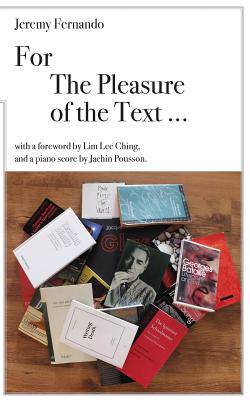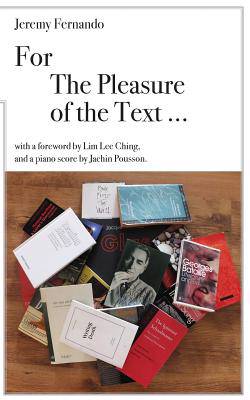
- Retrait gratuit dans votre magasin Club
- 7.000.000 titres dans notre catalogue
- Payer en toute sécurité
- Toujours un magasin près de chez vous
- Retrait gratuit dans votre magasin Club
- 7.000.000 titres dans notre catalogue
- Payer en toute sécurité
- Toujours un magasin près de chez vous
Description
At the heart of this book lies attempts to read: reading here being understood as the openness to the possibility of another; a relation that occurs prior to any semantic or formal identification, and, therefore, prior to any attempt at assimilating, or appropriating, what is being read to the one who reads. Thus, an event. It opens with Lim Lee Ching's reading of this book; a reading before your reading, as it were. And is followed by Jeremy Fernando's attempts to respond to the many Roland Barthes - all whilst foregrounding the risk that, even as one attempts to read as openness to the possibility of another, all reading potentially re-writes the other; that his reading may well be an inscribing of his R.B.; that whilst reading it, you may well be making your very own R.B.. In the midst of which, you will find a piano score composed by Jachin Pousson: which is both a nod to the fact that Barthes was a pianist, and also a note to the musicality of the thought of Roland Barthes. The hope is that these readings bring, open the possibility of, pleasure: not just for the one who reads, but perhaps even for - if one allows oneself to imagine - the text. For the one we call, name - can do nothing but name - Roland Barthes.
Spécifications
Parties prenantes
- Auteur(s) :
- Editeur:
Contenu
- Nombre de pages :
- 110
- Langue:
- Anglais
Caractéristiques
- EAN:
- 9789810979034
- Date de parution :
- 12-11-15
- Format:
- Livre broché
- Format numérique:
- Trade paperback (VS)
- Dimensions :
- 127 mm x 203 mm
- Poids :
- 158 g







